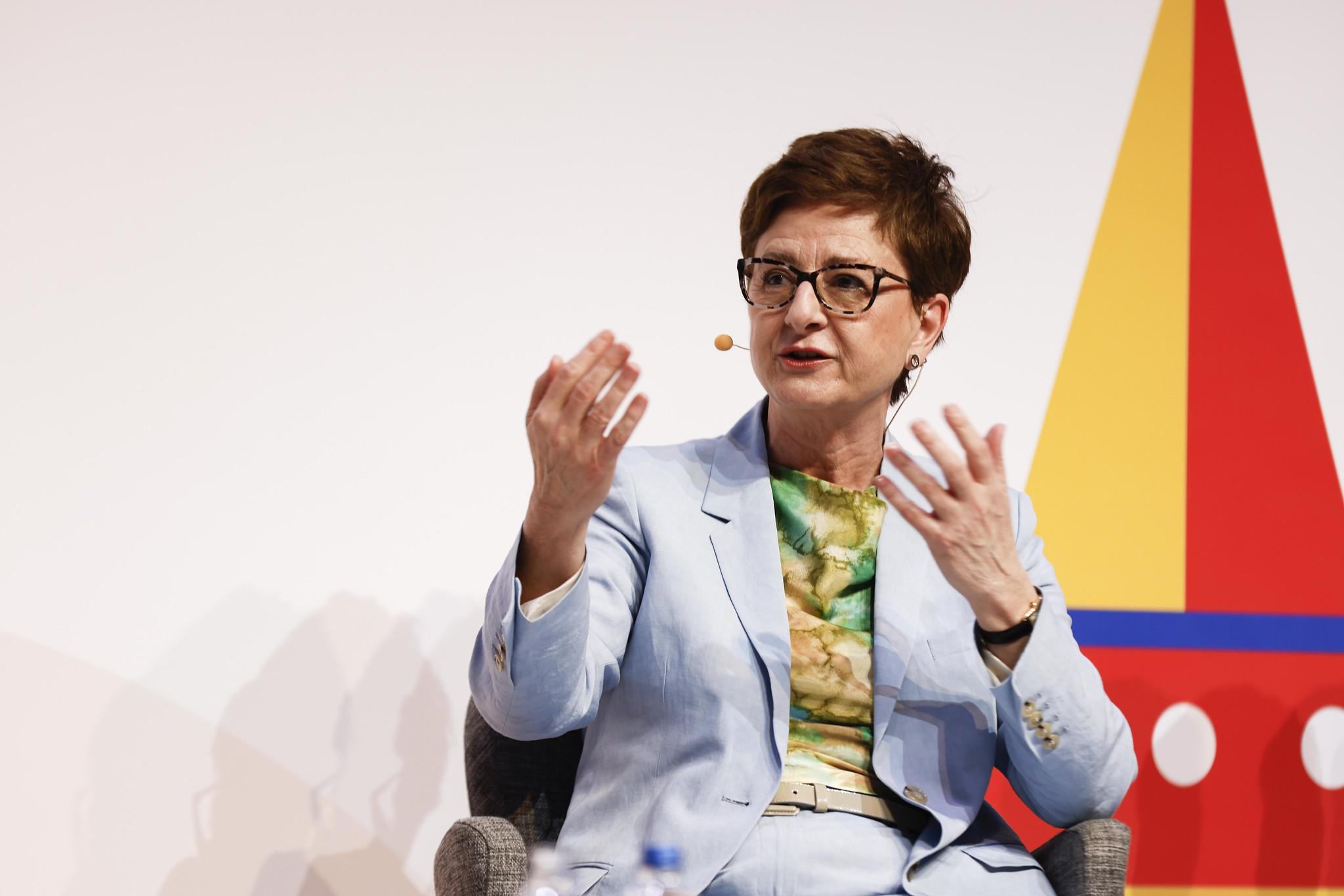
IATA senior VP sustainability & chief economist Marie Owens Thomsen
ISTANBUL–The aviation industry must use every available option available to meet the 2050 net-zero emissions target, an IATA official said. This includes areas such as investing in carbon offset programs and the diversification of sustainable aviation fuel (SAF) feedstocks.
“We need absolutely every tool in the toolbox to engineer this climate transition of ours. We just need everything and we need it fast,” IATA senior VP sustainability & chief economist Marie Owens Thomsen told ATW when asked about airlines pursuing programs like carbon offsets instead of SAF. “And then somewhere closer to 2050 when we have made significant progress in terms of reducing our CO2 emissions globally, then we can start to be choosy about the instruments that we use in the process.”
“There's nothing bad with offsets. The atmosphere doesn't care where emissions are being cut, as long as they're being cut,” she added.
IATA has called for the diversification and transition of SAF feedstocks to ensure scalability. Currently 85% of feedstocks are from so-called second-generation feedstocks, primarily hydroprocessed esters and fatty acids (HEFA), but is the least scalable. Governments should instead look at the investments in third-generation feedstocks such as agricultural residues, municipal solid waste, food waste and wet wastes.
Owens Thomsen expressed frustration with the lack of investments in new certified pathways, most of which are only out of the development stage and yet to be commercially viable. She estimated that the aviation industry needs $5 trillion of financing by 2050 to meet its environmental commitments, or $180 billion annually.
“Oil and gas exploration today receives already three times the amount that we need to be able to do our transition,” she said. “We have to get them out of that comfort zone and into the place where they will have to invest in new technologies at a higher cost.”
“The investment proposition is just too risky, as it always is at the early stages of a new technology in an inexistent market,” she added. “We need governments and regulators around the globe to help us set up at speed.”
Separately, IATA has identified 130 relevant renewable fuel projects announced by more than 85 producers across 30 countries, resulting in an estimated 69 billion liters (55 million tonnes) of renewable fuels by 2028, a portion of which will include SAF.
“If renewable energy production reaches 69 billion liters by 2028 as estimated, the trajectory to 100 billion liters (80 million tonnes) by 2030 would be on track. If just 30% of that produced SAF, the industry could achieve 30 billion liters (24 million tonnes) of SAF production by 2030.” IATA said in a statement.





